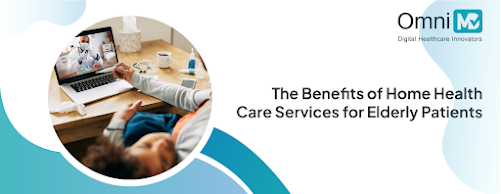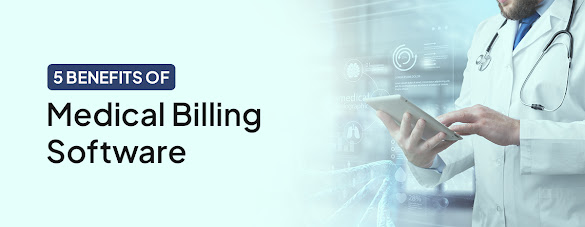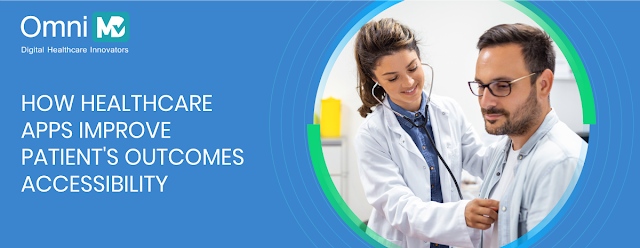A Comprehensive Guide to Home Healthcare Software
Home
healthcare software is transforming the way healthcare is delivered, offering a
myriad of benefits for both caregivers and patients. The landscape of home
healthcare software is vast, considering the wide variety of options and
evolving industry trends. Moreover, it has become a boon for home healthcare
agencies.
According to Future Market Insights, The global home healthcare software market was valued at approximately US$ 3.4 Bn during 2021. The market is expected to reach a CAGR of 8.4% with a valuation of US$ 8.1 Bn by 2032.
Further, we will delve into the key aspects of home healthcare software, exploring its functionalities, types, benefits, and the impact it has on the industry.
Home Healthcare Software: A Brief
Introduction
Home Healthcare Software refers to applications that support and streamline various aspects of home healthcare services. These applications are used by healthcare providers, caregivers, and other professionals involved in delivering care to patients in their homes. Home healthcare software includes a range of features to enhance patient care, manage administrative tasks, and improve communication among healthcare professionals.
What is Healthcare Software
Development?
Healthcare
Software Development is the creation of customised computer programs for the
healthcare industry. Healthcare software development aims to enhance
efficiency, accuracy, and overall functionality within the healthcare industry.
Healthcare software can create a comprehensive ecosystem that enables the delivery of precise and superior clinical services.
The development process includes the use of programming languages, frameworks, and technology tools to build applications, platforms, or systems specifically addressing the requirements of Home Health Services and patients.
Features of Home Healthcare
Software
Home Health Care Software comes with various features to enhance the efficiency of home care services
● Appointment Booking: This feature allows easy scheduling of appointments
for caregivers and patients.
● Multi-Channel Communication: It facilitates communication
through multiple channels for better connectivity.
● Monetization Models: It comprises tools for managing cash flow and
payment transactions in senior care businesses.
● Electronic Health Records (EHR): It enables efficient documentation
and reporting for patient care.
● Monitoring Patient Vitals: Includes features for monitoring
vital signs like pulse, temperature, and blood pressure.
● Environment Monitoring: Tracks environmental conditions to
ensure patient well-being.
What are the Different Types of
Home Healthcare Software?
Home healthcare software encompasses various types of designs to meet the diverse needs of care providers. These include:
● Home Care Management Software: It helps support agencies with
Electronic Visit Verification (EVV), caregiver scheduling, billing, and
payroll.
● Clinical Management Systems: It primarily focuses on clinical
aspects, including patient records, care plans, and health monitoring.
● Telehealth Solutions: It allows remote patient monitoring
and virtual consultations.
● Agency Software: It is customised for home care agencies and comprises
comprehensive management solutions.
● Hospice Solutions: It is specifically designed for hospice care
management and support.
● Electronic Visit Verification (EVV): It ensures accuracy in patient
visits and caregiver attendance records.
● Home Healthcare Agency Management Software: It is a comprehensive
solution for managing various aspects of home care agencies, including
scheduling and record-keeping.
Deployment Options for Home
Healthcare Software
Home
care software offers various deployment options for catering to various
requirements. These options provide flexibility and scalability for efficient
operations. Key deployment options include:
● Cloud-Based Deployment: This method utilizes cloud infrastructure that provides accessibility from anywhere with internet connectivity. Cloud deployment ensures easy updates, scalability, and cost-effectiveness.
● On-Premises Deployment: It involves installing and
maintaining the software on local servers within the healthcare facility. This
alternative gives control over data security but requires a more significant
upfront infrastructure investment.
● Hybrid Deployment: It combines the aspects of both cloud-based and
on-premises deployment. This approach allows home healthcare agencies to
benefit from the advantages of both options, which helps balance control
and accessibility.
● Mobile Application Deployment: Some home healthcare software may
offer deployment through mobile applications. As a result, accessibility from
smartphones and tablets increases mobility and convenience.
Top Benefits of Home Healthcare
Software
Home
healthcare software provides several benefits for both healthcare agencies and
patients.
Quick Access to Patient Data
While managing home-based healthcare, the majority of Home Health Care Services
opt
for cloud-based software. As cloud-based ERPs gain popularity over
traditional on-premise medical record-keeping in the realm of home healthcare,
the former feature empowers staff to access patient data seamlessly across
various devices.
Enhanced User Experience
Home healthcare software offers caregivers a comprehensive list of patient-specific tasks and pre-emptive reference notes. It ensures caregivers can deliver optimal healthcare services at home, which promotes a high-quality patient experience.
Streamlined Workflow
Utilising a mobile app enables staff to complete administrative tasks through checkbox selections which significantly reduces time-consuming paperwork. This streamlined process boosts employee satisfaction as they are relieved from the burden of filling out extensive forms for each patient engagement.
High Scalability
As the home healthcare model starts generating revenue, expansion is likely to happen. Implementing a centralized software system can save time and costs when onboarding additional staff or extending services to new locations.




Comments
Post a Comment